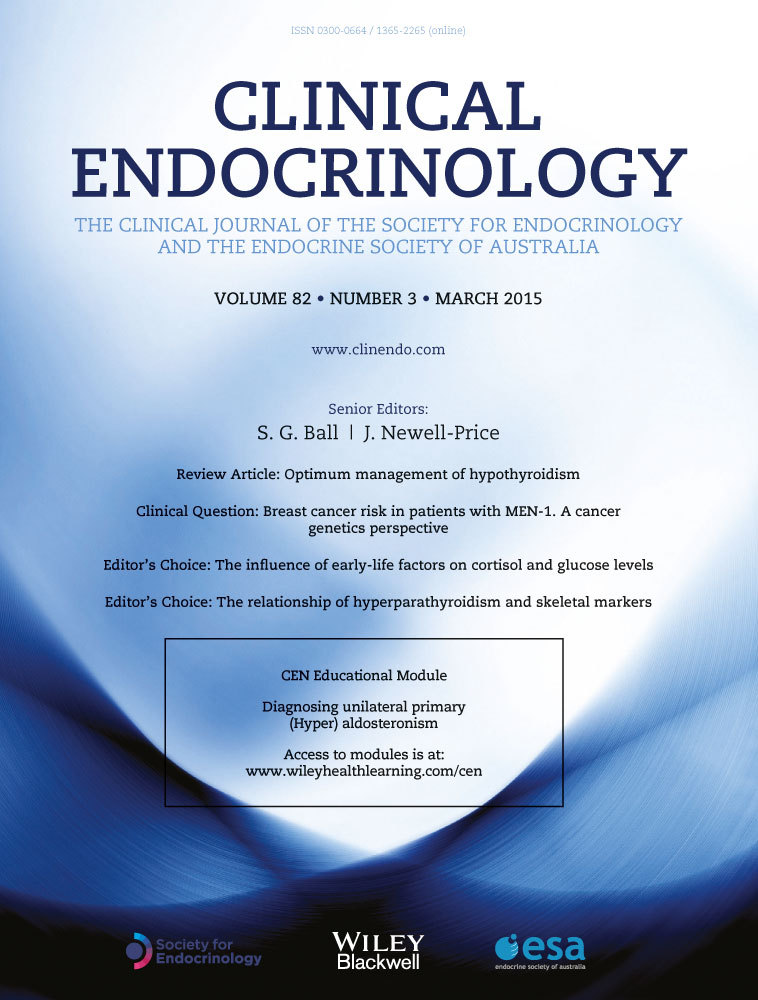Early-life factors are associated with nocturnal cortisol and glucose effectiveness in Afro–Caribbean young adults
Summary
Context
Early-life factors (including intrauterine growth retardation) may influence the development of type 2 diabetes. We postulated that birth size is associated with cortisol levels, which itself could alter serum adipomyokines (i.e. adiponectin, IGF-I, myostatin) and glucose metabolism.
Design
An observational study with 60 Afro-Caribbean young adults from a birth cohort.
Measurements
Fasting blood was drawn for serum adiponectin, IGF-I and myostatin. A frequently sampled intravenous glucose tolerance test measured insulin sensitivity (SI), acute insulin response (AIRg), disposition index (DI) and glucose effectiveness (Sg). Body composition was assessed by dual-energy X-ray absorptiometry. Salivary cortisol was collected at home at 0800 and 2300 h. Sex-adjusted correlations were used to explore the relationships between birth size, cortisol and the metabolic variables.
Results
The participants were 55% male, mean age 23·1 ± 0·5 years. Birth weight correlated positively with 2300-h cortisol (P = 0·04), although not after adjusting for gestational age. Gestational age was correlated with 2300 h cortisol (r = 0·38, P = 0·03), even after adjusting for birth weight (P = 0·02). 2300 h cortisol was not associated with adiponectin, IGF-I, myostatin, SI, AIRg or DI, but was negatively correlated with Sg (r = −0·30, P = 0·05) even after adjusting for birth and adult anthropometry. Adiponectin, IGF-I and myostatin were unrelated to glucose metabolism.
Conclusions
Gestational age is associated with higher nocturnal cortisol, which in turn is associated with lower glucose effectiveness in adulthood. Higher glucose effectiveness could therefore be a compensatory mechanism to improve glucose uptake.




